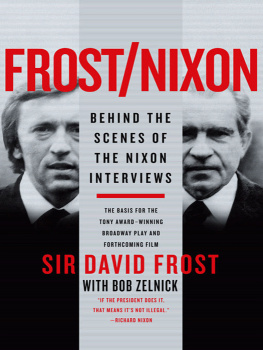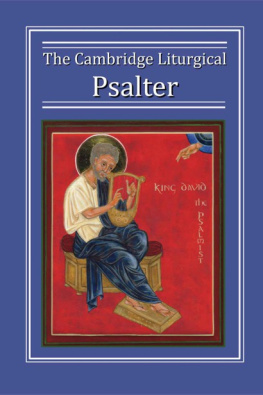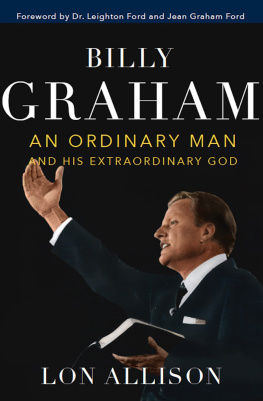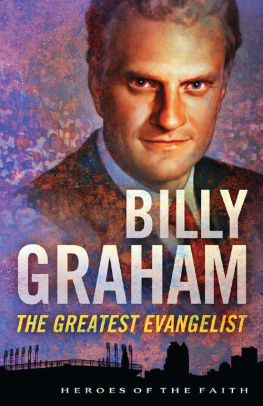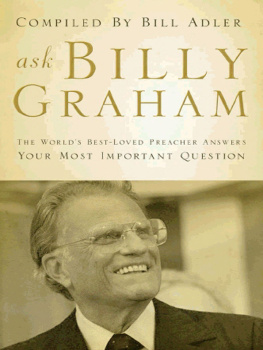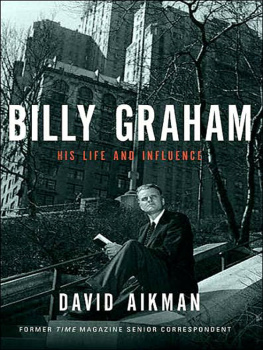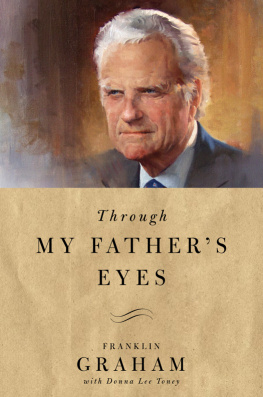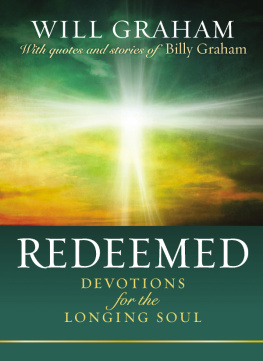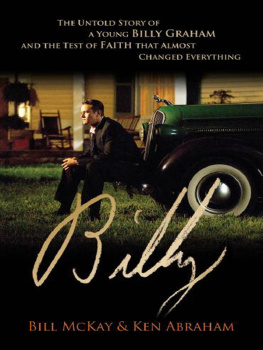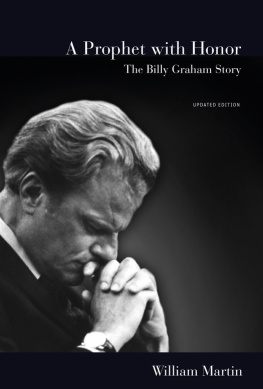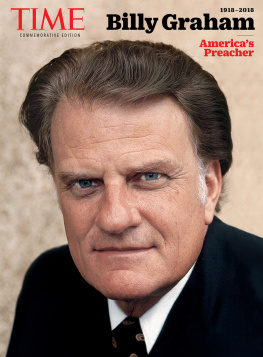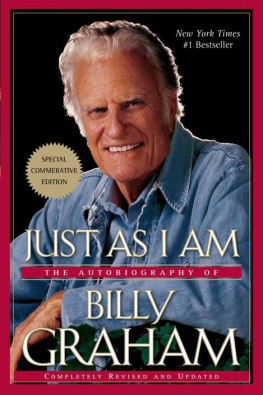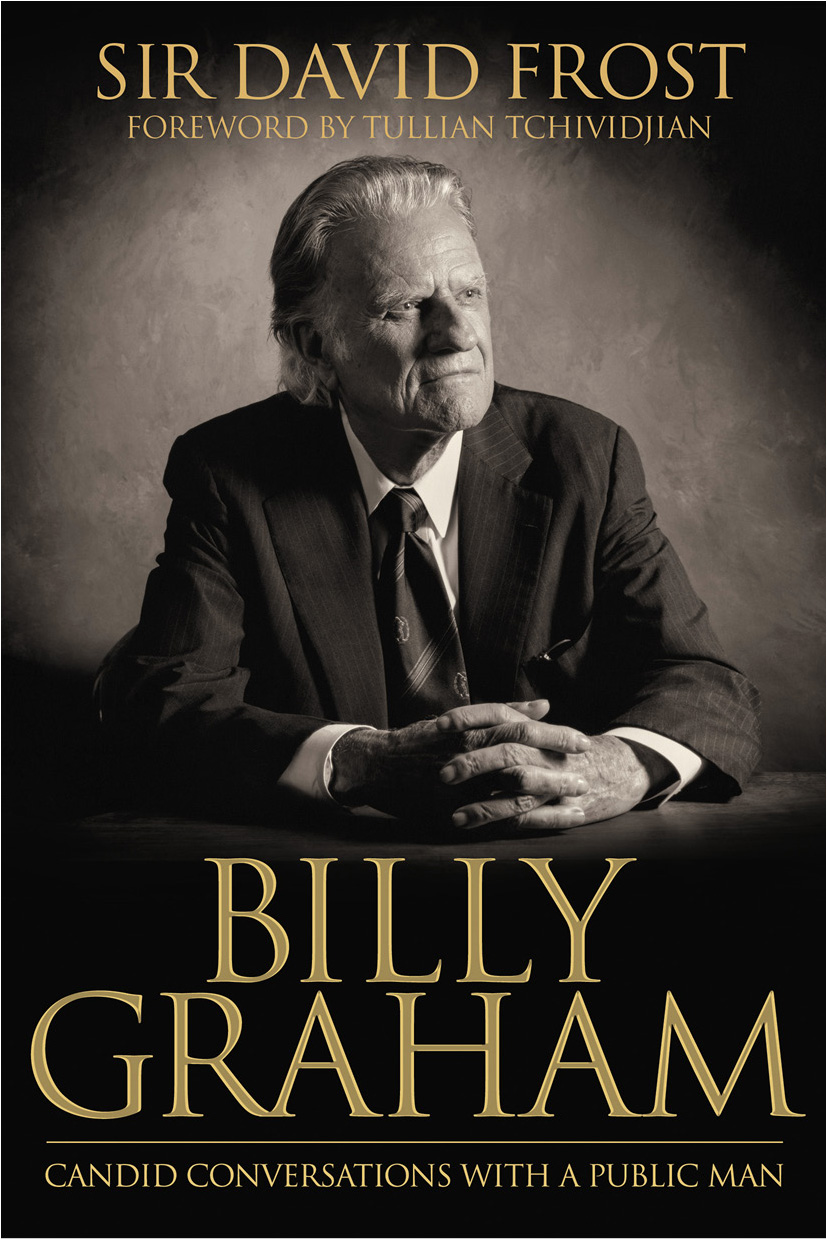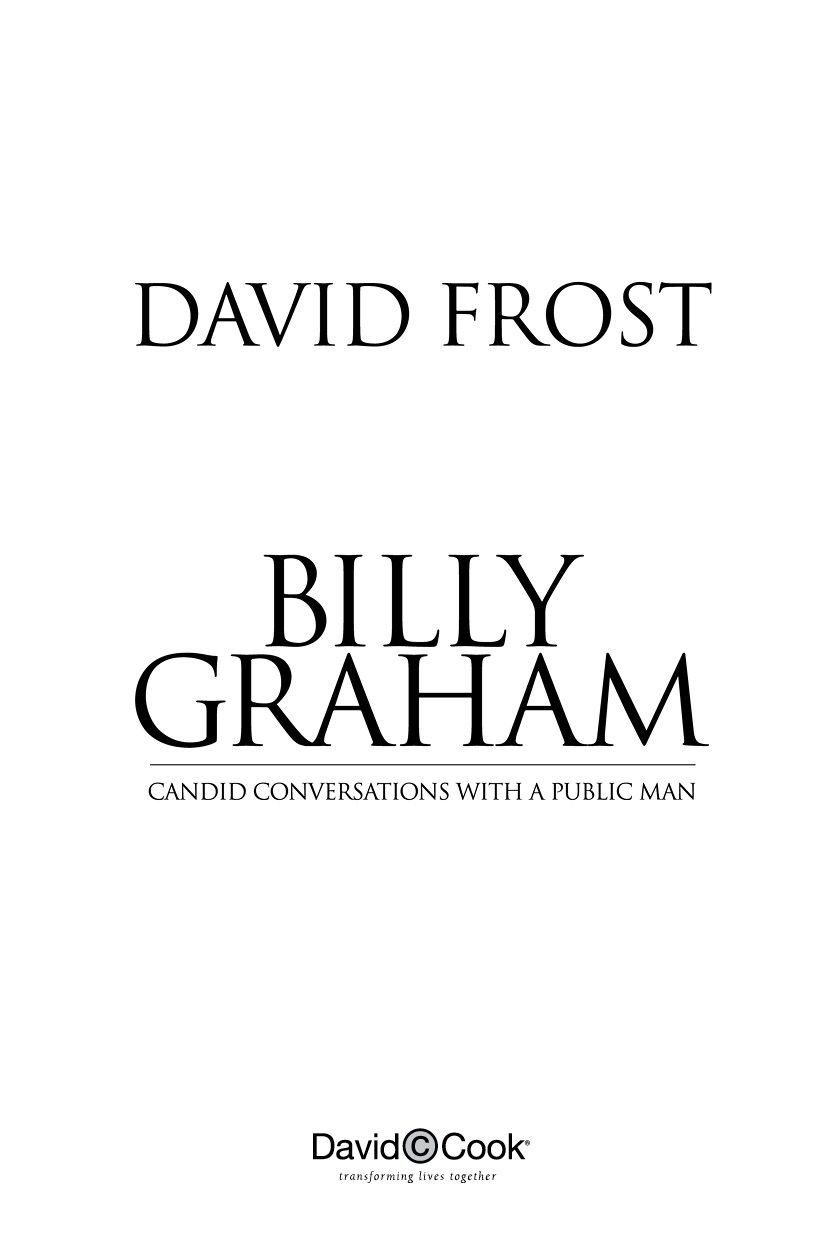Contents
Foreword
This book of conversations between my grandfather and legendary interviewer Sir David Frost, well known for his controversial interview with Richard Nixon and the film Frost/Nixon , is an eye-opening and revealing look at the faith of Daddy Bill.
Reading about my grandfathers doubts and failures in black and white offers a refreshing view of his life and his relationship with Jesus and demonstrates the unmerited grace of God for all of us. In these pages, Daddy Bill talks with David Frost about the things he wished he never said, his failures as a parent, as well as those difficult questions he feels he will never be able to answer on this side of heaven. Also, because these discussions took place over a thirty-year period of time, he shares his perspective on everything from Martin Luther King Jr. and the civil rights movement to preaching the gospel in the former Soviet Union during the Cold Warand even mentions human cloning. He talks openly about meeting many of the American presidentsdescribing the first time he met Harry Trumanand about his relationships with Eisenhower, Nixon, Kennedy, Reagan, and Bush.
Frost asks Daddy Bill to describe his morning study time, and my grandfather explains exactly what he reads every morning, how that fills his soul, and how he likes to share with people out of that overflow. As you would expect, this book also gives us an inspiring picture of his zeal for Jesus and his passion to share the good news everywhere he goes.
I hope you enjoy reading and reflecting on the words in this book. You will get a clearer picture of Daddy Bill, the man behind the evangelist known around the world.
Tullian Tchividjian
May 2014
Introduction
When David Frosts people approached us about publishing his television interviews with Billy Graham, we were intrigued. We remembered over the years how these two menfriends for over thirty yearsfascinated audiences with their dialogues of faith. Frost asked the questions that were on millions of peoples minds; Dr. Graham answered them without pretense or religiosity. If he didnt know the answer to some puzzling theological conundrum, Graham said so. If he had an opinion that was not rooted in the Bible, he qualified his answer.
If the answer was in Scripture, Graham put a spotlight on Gods Word and gave his interpretation. Invariably, he would utter his trademark phrase, The Bible says The television interviews made for grand viewing, and millions watched them here and abroad.
Our only question was in regards to the relevance of the interviews. That is, were they still timely? We should have known better from the start. In reviewing the footage we found that far from being dated, they were more relevant now than ever. The Bible is a book for all people, and Billy Grahams focus for the whole of his ministry has been the ageless Word of God. Thus we knew we wanted to publish the Frost interviews as a way of giving historical permanence to them.
We are happy to add this book to the library of works that document the life and times of Billy Graham. Our prayer is that in some small waylike his ministryit serves to glorify God.
The Publisher
Preface
The first time I ever interviewed Billy Graham on television was on BBC Two in July 1964. I asked him what he regarded as the single most touching or moving demonstration of faith he had ever witnessed.
He responded, I remember the opening night of our meeting in London in 1954, which you certainly remember. And the press was all against us. Every newspaper. The church leaders that had brought us there, many of them had deserted us. It had been brought up in Parliament as to whether I should even be allowed to land in Britain or not, and everything seemed against us. I had invited Senator Stuart Symington and another US senator to be my special guests there. And that afternoon Senator Symington called me on the phone and said, The American ambassador feels that because of all this bad publicity that we should not come. Instead were going to have dinner this evening with Sir Anthony Eden, who was then the foreign secretary. And then I was called to my little hotel about a half an hour before the service, and they said, The place is empty. There are four hundred newspaper people here taking pictures of all the empty seats. And we had rented this place for three months.
And so my wife and I got on our knees and said, Now, Lord, were prepared for anything You want. It can be a total flop, or it can be a success; we leave it in Your hands. I had great peace about it. It was an exercise in faith to even go out there. We went out there. We didnt see a person. We got out of the car, and one of my associates came out of the door of the Harringay Arena and said, Billy, the place is packed, and there are five thousand people on the other side trying to beat the doors down. And I said, Where did they come from? The associate said, We dont know; God must have sent them. And we were there for three months, and not only did we not have empty seats, but we had two and three services a night on some nights to take care of the people and ended up at Wembley Stadium, with the press all for us and the archbishop of Canterbury sitting by my side.
In retrospect it hardly seems amazing that so many people showed up to hear the twentieth centurys most powerful preacher, but at that time in 1954, in a country where Dr. Graham did not know what kind of a reception he would receive, I can understand why this was such an important faith moment in his long ministry.
I can also understand why people came and why they came back again and again for three months. No one presented the gospel of Jesus Christ as clearly or as straightforwardly as Dr. Graham. He believed his message totally, offered it without apology, and stated unequivocally how urgent he thought it was for people to accept Christnow. And thousands responded. It was the same when I interviewed him on television in the sixties, seventies, eighties, and nineties. People responded.
Billy and I have had many conversations over the last thirty years. One day I was reviewing the tapes of the shows we have done together, and it came to me that they comprised a record that should be put between the covers of a book because of the permanence it would give his words. Television is a wonderful, powerful medium, but the words of Billy Graham merit the sort of additional study that is easiest in book form.
As Ive compiled these interviews, reminisced, and added other comments Ive come across, I have found it enormously interesting and satisfying. Not because it is a complete picture of Billy Grahams life and ministryI doubt that any one book will ever be able to accomplish thatbut because it gives a snapshot here and a snapshot there that together form a fascinating mosaic of evangelical Christianity as it attempted to hold its own in a century more known for its secular religions such as fascism and communism.
I think the book is a unique summary of the man and his ministry, and I recommend it to all who have been touched, inspired, guided, and/or blessed by Billy Graham.
David Frost
June 1997
Frost: What is the hymn that means the most to you?
Graham: You have a hymn in England that I first learned when I was there in the early fifties, And Can It Be.
Frost: that I should gain
Graham: that I should gain
Frost: An interest in the Saviors blood; died He for me who caused His pain, for me who Him to death pursued.


